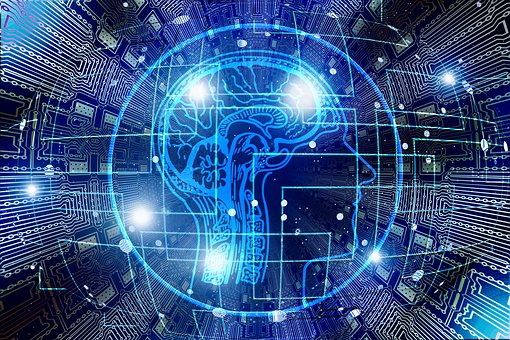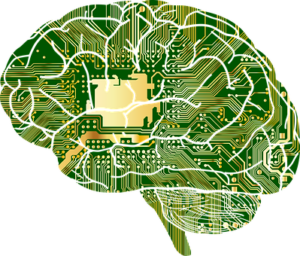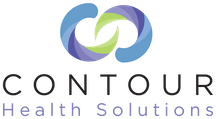Will Artificial Intelligence Replace Doctors?

True story!
We were sitting at the breakfast table on a Saturday morning, drinking our morning cups of coffee, reading our individual news updates on our phones and tablets when he casually looked in my direction between sips and asked,
“So, when are you going to be replaced by AI?”
I literally stopped reading mid-sentence and almost choked on my coffee. I gave him a glaring, yet jokey smirk and replied, “Uh, not anytime soon.”
Despite our playful banter, my husband’s question was 100% legitimate! Will I and other doctors by replaced by artificial intelligence (AI) in the next 5 or 25 years? After all, the major health technology buzzwords of 2018 are “AI” “machine learning” “deep learning.” If you do not fully understand the technology, you would think that we are quickly moving towards the real version of Steven Spielberg’s A.I. sci-fi drama and all doctors are going to be replaced by humanoid robots that look like Jude Law.
The reality is that many physicians and other clinicians do have false impressions and misinterpretations of AI. While AI is heavily discussed and debated in the health information technology world, many health professionals serving on the front line of diagnosing, treating, and managing patients and their health conditions believe that AI is being created to reduce the role (and possibly need) of physicians and other clinical personnel. AI offers numerous possibilities to improve and save lives. However, if this technology is created in a silo without the engagement and support of physicians, the technology may not add value and lead to numerous expensive flops.
My teams and clients that have worked with me over the years know that one of my primary solutions to implement successful ideas or technology is knowledge distribution. So below is my mini-tutorial of AI for non-tech physicians and other clinical professionals.
What is AI, Machine Learning, and Deep Learning?
Artificial Intelligence is an umbrella term used to describe a computer’s “ability to complete tasks in a manner typically associated with a rational human being”. While the term AI is often used in general terms, there are several variants of AI used in healthcare. I will highlight two of the most common forms of AI that excite health IT experts and confuse clinicians.
Machine learning is one of the most common variants of AI in healthcare. Machine learning is based on computer and software-based algorithms that use pattern recognition and rule-based logic to analyze complex medical data. These analyses produce observations and predictions to assist in clinical-decision making. While the initial algorithms are programmed by clinical data scientists, the algorithms continue to evolve as more and more data becomes available. This results in more precise and reliable observations and predictions over time, thus the term “machine learning”. Examples of real-life machine learning algorithms include identification of hospital patients at high-risk for clinical deterioration, personalized treatment algorithms for cancer or genetic disorders, and hospital 30-day readmission prediction calculators. See, it’s not too scary nor abstract.
Deep learning is a branch of machine learning that is emerging as a “hot topic” especially in the fields of Radiology and Pathology. Deep learning algorithms use artificial neural networks (ANNs) that are created to mimic human brains. The ANNs learn to recognize subtle patterns in distinct layers and analyze these “visual” findings into a clinical outcome. The hope is for deep learning algorithms to result in improved reliability and accuracy of diagnostic medicine.
The potential for AI to transform the preventive, diagnostic, and treatment landscape of healthcare is great. We are in the ideal era to do so given the breadth of data from electronic health record systems and our quickly evolving world of technology. However, there are still glaring challenges that exist before we will see full adoption of AI technology. To advance this technology forward, it is essential to:
-
Create strong coalitions between physicians and data scientists to ensure the technology is clinically relevant and adopted.
-
Demonstrate improved patient clinical outcomes and experience.
-
Validate increased operational efficiency of medical services and cost reduction.
Essentially, I do not believe that AI will replace physicians and other clinical professionals. Although technologic advances over time may create intricate algorithmic systems that are smarter and faster than the human brain, technology cannot replace the art of medicine which is based in human connection, communication, and empathy. However, now is the time to develop and embrace new prevention, diagnostic, and treatment models that will foster overall health and well-being among diverse communities.
Align Physicians and Data Scientists- One of the main features behind my success as the CEO of a boutique consulting firm that I am bilingual- I speak clinician and tech fluently. Often, health IT experts envision an idea and move on designing and implementing it at blazing speed. However, they do not consult or engage any clinicians to determine if the new software or technology is clinically relevant or useful. Their admirable efforts fall flat and can lead to feelings of failure or resentment. Physicians can also have challenging behaviors. Medicine is one of the slowest moving industries due to the critical nature of the work (i.e. saving people’s lives) and the way that clinical practice is rooted in medical literature that may be years or decades old. Therefore, many physicians are cautious or resistant to incorporating new technologic adjuncts or practices into their patient care. But, aligning physicians and data scientists is imperative to the advancement of technology that can truly save or change lives. Therefore, both sides need to be engaged and collaborate on the next steps. This will require strong clinical IT champions and translators to ensure silos do not.
- Improve Patient Clinical Outcomes and Experience: It’s not enough to have snazzy new software or a new device that can predict your next . Is the data clinically relevant? Is the data clinically actionable? Will the new technology change patient clinical outcomes and experience? A “Yes” to each of these questions is imperative to incorporate AI approaches into mainstream healthcare to truly transform the industry.
- Improve Efficiency and Decrease Costs: In addition to clinical value, the new technology must also improve efficiency of diagnostic services and clinical treatments provided while also reducing costs.
About Contour Health Solutions
Contour Health Solutions is a national advisory firm that works with health organizations, entrepreneurs and investors achieve profits by implementing health technology strategies that improve the efficiency of medical services.
